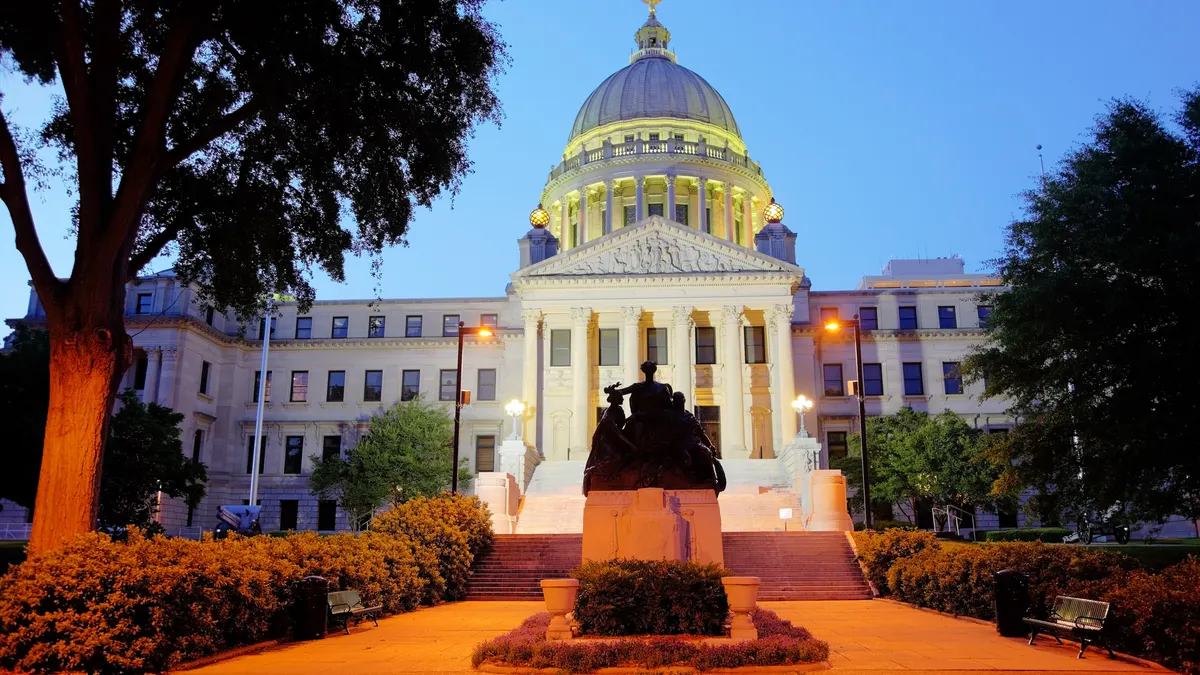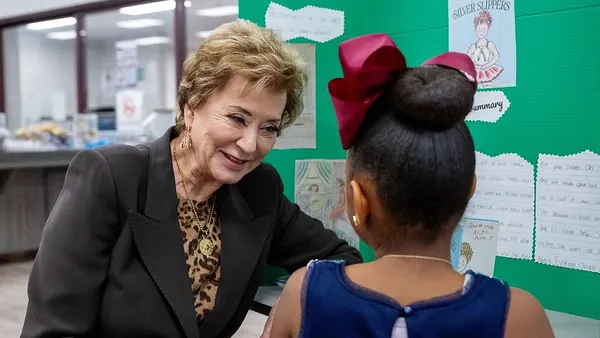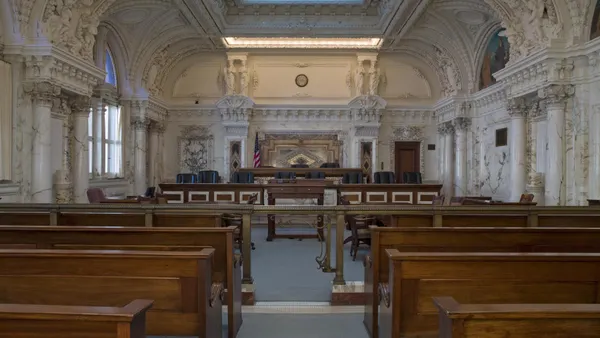Dive Brief:
- A federal judge on Sunday temporarily blocked enforcement of major parts of a new Mississippi law that bars diversity, equity and inclusion in the state’s public K-12 schools and colleges.
- The American Civil Liberties Union of Mississippi and other organizations filed a lawsuit in June on behalf of students and educators, arguing the new law imposes the state government’s views on race, gender and sexuality on public schools and colleges and censors opposing views.
- In his ruling, U.S. District Judge Henry Wingate pointed to accounts of educators having their programs shut down or censoring their own speech to ensure they don’t run afoul of the law. The accounts signal “possible widespread suppression of speech, programming, and institutional function,” Wingate wrote.
Dive Insight:
Educator and student groups sued over the law just two months after it took effect in April, arguing the legislation violates their First Amendment right to free speech and is unconstitutionally vague.
“It is difficult for administrators, teachers, and students to distinguish prohibited actions from permissible ones, making the law particularly susceptible to arbitrary and discriminatory enforcement,” the lawsuit said.
One contested aspect of the law is a provision that bans public K-12 schools and colleges from either engaging in or requiring diversity training, which it defines as any formal or informal education meant to increase “awareness or understanding of issues related to race, sex, color, ethnicity, gender identity, sexual orientation, religion or national origin.”
This edict applies to both elective or required courses, according to the lawsuit. The plaintiffs warn of dire consequences from the legislation, arguing its provisions would prohibit constitutional law professors from discussing discrimination and history teachers from teaching about the Civil War and slavery.
Under the bill, K-12 schools and colleges also can't "engage in" eight "divisive concepts" — a provision the lawsuit calls "extremely broad." One divisive concept, for instance, is that an individual “by virtue of his or her race, sex, color, national origin, is inherently racist, sexist, or oppressive, whether consciously or unconsciously."
The lawsuit argues that could block discussions of implicit bias in sociology, psychology and other classes.
Public K-12 schools and colleges that don’t follow the law face a steep penalty if they rack up two violations — the potential loss of state funding. Schools and colleges must “cure” their violations to avoid this punishment, though the legislation doesn’t explain how that can be accomplished, sparking concerns that educators will be fired and students will be expelled, according to the lawsuit.
The legislation also carves out exceptions for “scholarly research or creative work” by students and employees. But the lawsuit argues those carve-outs are unclear and raise questions about whether students could discuss work on one of the banned concepts during class.
“Like other provisions of the act, this exception is vague and further confuses what is and what is not prohibited by the law,” the plaintiffs argued.
The defendants include Mississippi Attorney General Lynn Fitch, as well as the chairs of the state community college system’s coordinating board and education board, among others. They filed a motion to dismiss earlier this month, arguing that the plaintiffs lacked standing to sue and that the attorney general was shielded by sovereign immunity.
However, Wingate wrote that U.S. Supreme Court precedent allows plaintiffs to seek injunctive relief against state officials to prevent constitutional violations.
The temporary restraining order is in effect until further court order. Wingate is holding a hearing Wednesday over whether to grant a preliminary injunction, which would last until he issues a final ruling on the case.
In his ruling, the judge pointed to accounts from educators and students. One plaintiff, a librarian at Hinds Community College, expressed uncertainty about whether she can recommend books on race, gender or identity or curate material for events like Black History Month.
And the director of student development at Tougaloo College said she has suspended programs meant to support LGBTQ+ students out of concern that discussion of gender identity could risk her institution’s funding.
Since the law took effect in April, institutions have been attempting to follow the legislation, often “erring on the side of caution” by canceling programming that could now be prohibited, Wingate noted.
“This Court finds that each day the statute remains unclarified, undefined, and under a threat of open interpretation, exacerbates the suppression of protected speech,” Wingate wrote.







 Dive Awards
Dive Awards








